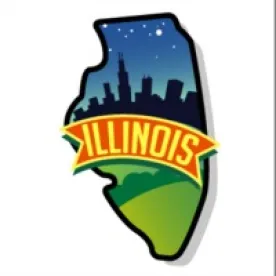The month of April (2015) brought us two of the more significant updates in the 10-year history of the Stephen B. Diamond ("Diamond") whistleblower lawsuits, filed under the Illinois False Claims Act (the "Act"), 740 ILCS §175/1et seq.
As too many of us already know, Diamond's qui tam suits have been a steady onslaught of fraud claims filed against retailers selling into Illinois. What began with a nexus sales and use tax issue on internet sales into Illinois, then moved to taxation of shipping and handling charges, has most recently branched into wineries and out-of-state liquor retailers' alleged tax obligations for sales into Illinois.
On April 21, the Illinois Appellate Court upheld Circuit Court Judge Mulroy's ruling that Diamond did not establish the requisite "glaring evidence" that the State acted in bad faith when it moved to dismiss Diamond's qui tam action in Diamond v. QVC, Inc., 2015 IL App (1st) 132999. In that case, Diamond alleged that QVC defrauded the State by failing to collect and remit use tax on shipping and handling charges paid to it by customers. The Illinois Attorney General initially declined to intervene, but later moved to intervene and dismiss the case because QVC had previously been audited by the Illinois Department of Revenue. The Appellate Court not only agreed with Judge Mulroy's ruling that the State continued to control the case, even to the point of dismissing it, but also agreed with Judge Mulroy's decision that Diamond should not be entitled to any award from taxes that QVC paid subsequent to the case being filed. Both the Appellate Court and Judge Mulroy relied heavily on the earlier Illinois Appellate Court decision of State ex rel. Beeler, Schad & Diamond v. Burlington Coat Factory Warehouse Corp., 369 Ill. App. 3d 507 (2006), in which the Court stated, "the presumption is that the state is acting in good faith and, barring glaring evidence of fraud or bad faith by the state, it is the state's prerogative to decide which case to pursue, not the court's."
As it turns out, that recent favorable decision was a good precursor for the next noteworthy event in the pending qui tam cases: on April 28, the State filed motions to intervene and dismiss more than 80 of the pending Circuit Court actions currently before Judge Snyder.
Each of those claims alleges that a different out of state liquor retailer defrauded the State by failing to collect and remit sales tax and liquor gallonage tax on sales into Illinois. Pursuant to the Act and precedent from the appellate court, including the Burlington Coatdecision, and now armed with the additional support from the QVC decision, the State has moved to dismiss those cases against the numerous liquor retailers. Although the State can dismiss a qui tam action on the sole basis of prosecutorial discretion, it has given Judge Snyder additional legal bases in these motions, including the common fact that none of the liquor sellers have a physical presence in Illinois. Not surprisingly, Diamond has asked Judge Snyder for time to file written objections to the State's motions. A hearing is scheduled in August and a decision may come even later.
- The good news: the QVC decision supports the State's advocacy for defendants in these cases and should promote more motions to dismiss in future cases;
- The not-so-good news: historically the State has not supported the defendants in these cases and has only moved to dismiss a small number of the Diamond claims, before this batch, even after being presented with good facts in many cases;
- The bad news: while the current motions to dismiss are a welcome surprise to the liquor retailers, it is unlikely that the State will file similar motions for the other numerous pending Diamond claims against wineries and other sellers over the internet;
- The outlook: as long as Diamond has access to the internet, and the legislature fails to revise the Illinois False Claims Act, these qui tam claims will continue to be filed.




 />i
/>i

